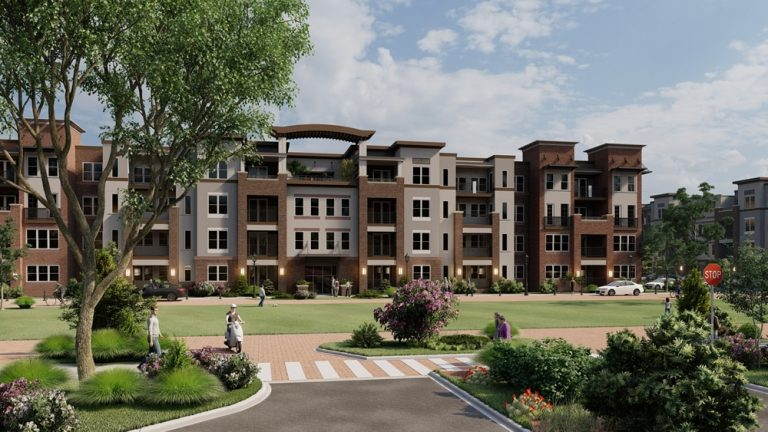- October 28, 2024
- Advice
Property Management Essentials: Building Value and Tenant Satisfaction

Property management is about much more than overseeing buildings and collecting rent. Effective property management requires strong tenant relationships, efficient operations, and strategic planning to maximize property value. By focusing on areas such as maintenance, tenant communication, financial planning, and selective use of social media, property managers can create a thriving rental community that benefits tenants, owners, and the bottom line.
Key Areas of Focus in Property Management
A successful property management strategy includes several core components that support both operational efficiency and tenant satisfaction.
1. Routine Maintenance and Repairs
Routine property maintenance is essential to keeping tenants satisfied and protecting property value. When maintenance is timely and preventive measures are in place, tenants feel more comfortable and secure. It’s important for property managers working as a solo practitioner or for a multi-platform property management company operating globally or locally like Airbnb management London to regularly inspect high-use areas, such as plumbing, HVAC systems, and electrical fixtures, and to conduct preventive checks to catch issues before they escalate.
Regular maintenance scheduling helps avoid major, costly repairs and keeps tenants happy by ensuring their home environment is safe and comfortable. Reliable contractor partnerships are also valuable, as trusted professionals can provide quick repairs and high-quality service, contributing to a positive experience for tenants. Managers should also focus on property preservation. It has become one of the key pillars to successful tenant satisfaction.
Property preservation involves proactive measures to maintain and protect the value of properties, making sure they remain in good condition and are appealing to current and prospective tenants. There’s more to property preservation then just routine inspections because it can guarantee long term success and profitability for their assets.
2. Tenant Screening and Leasing Procedures
The foundation of a thriving property community is a group of responsible tenants who respect the property and follow guidelines. Thorough tenant screening helps identify individuals who are likely to meet these expectations, minimizing future issues related to payment, property damage, or disruptions.
A rigorous screening process, essential in residential rental property appraisal, involves evaluating each applicant’s credit history, income, rental background, and references. Additionally, clear and well-drafted lease agreements protect both tenants and property managers by setting clear expectations about policies, rules, and tenant responsibilities.
After the selection process, property managers should meet with new tenants to review lease terms. This step can prevent misunderstandings and establish an open line of communication, setting the stage for a positive landlord-tenant relationship.
3. Transparent and Consistent Communication
Communication plays a significant role in tenant satisfaction and retention. Property managers who prioritize communication build trust, encourage tenant feedback, and ensure that small issues don’t turn into bigger problems. Effective communication includes promptly addressing inquiries and concerns, proactively notifying tenants of property changes, and keeping them updated about maintenance schedules.
Methods like email newsletters, dedicated tenant portals, and periodic updates help keep everyone informed. Regular communication fosters a community atmosphere, making tenants feel valued and more likely to renew their leases.
Strategic Property Improvements
Investing in property improvements helps maintain and increase a property’s value. However, choosing which upgrades to make requires careful consideration. Smart improvements that offer a clear return on investment, such as energy-efficient appliances, enhanced security, or upgraded common areas, can make a property more attractive without major expenses.
Simple updates, such as modernizing fixtures or improving landscaping, add appeal and contribute to tenant satisfaction. More advanced upgrades, like implementing smart home technology, can set a property apart from competitors and justify modest rent increases.
Financial Management and Planning
Effective property management requires sound financial management. Property managers must handle budgeting, manage operating expenses, and plan for unexpected repairs or emergencies. Clear financial planning also helps managers identify potential areas for cost reduction, like bulk maintenance supplies or energy-efficient upgrades.
Creating a structured budget allows property managers to allocate funds for regular maintenance, improvements, and operational costs while setting aside reserves for emergencies. Regular financial reviews and transparent reporting with property owners help ensure that goals are being met and that the property’s value continues to grow.
The Role of Social Media in Modern Property Management
In today’s digital age, social media has become an important tool for engaging with tenants and marketing properties to prospective renters. While the primary focus of property management is operational, social media can amplify the effectiveness of traditional approaches by enhancing communication, visibility, and engagement.
Platforms like Instagram and Facebook allow property managers to share property listings, highlight community events, and update tenants on amenities. High-quality images of available units, common areas, and neighborhood highlights can attract prospective renters and showcase the property’s unique appeal. Social media also facilitates quick, convenient communication, allowing tenants to ask questions or report issues. Positive online interactions can strengthen tenant loyalty and contribute to the property’s reputation.
Facebook, in particular, Facebook tools like Action Sprout for is used for managing messages, comments, and posts across both Facebook and Instagram. This tool allows property managers to stay on top of tenant inquiries and engagement in one centralized dashboard, making it easy to respond quickly and maintain consistent communication. These Facebook tools make it more efficient to manage a property’s online presence and connect meaningfully with tenants and prospects alike.
Furthermore, targeted social media ads are valuable for filling vacancies by reaching potential renters who match the property’s target demographics.
Enhancing the Tenant Experience
Property management is also about creating a positive and comfortable living environment that tenants are proud to call home. This is especially true for property managers in competitive markets like New York City, where quality tenant experience can be the key differentiator. Here are a few practical steps NYC property management teams can take to enhance the tenant experience:
- Community Events and Gatherings: Hosting occasional events, whether virtual or in person, creates a stronger community atmosphere. Simple gatherings, like holiday parties or welcome events, provide tenants with a chance to meet their neighbors and foster a sense of belonging, which can be particularly impactful in bustling urban settings like NYC.
- Providing a Tenant Portal: Offering a dedicated portal for maintenance requests, rent payments, and community updates can streamline communication and make life easier for tenants. With a user-friendly tenant portal, tenants can submit requests at any time, which enhances their overall experience and satisfaction. In a fast-paced environment like New York, tenants value convenience, and a reliable portal can be a strong selling point.
- Listening to Tenant Feedback: Actively seeking feedback through surveys or casual conversations helps managers understand what’s working and what might need improvement. Showing tenants that their opinions matter builds goodwill and improves retention rates, a critical factor in NYC’s competitive rental market where tenant satisfaction can mean the difference between renewal and turnover.
- Adapting to Market Trends: NYC property management teams know the importance of staying current with trends in amenities and services, like high-speed internet or pet-friendly policies. These offerings are increasingly popular and make properties more appealing to prospective renters, many of whom seek modern conveniences in New York’s vibrant but high-demand real estate landscape.
Conclusion
Property management is a multifaceted field that combines practical skills, strong tenant relations, and strategic decision-making to create value. By focusing on effective maintenance, tenant communication, financial management, and selective social media use, property managers can enhance tenant satisfaction, reduce turnover, and improve the property’s market position. With a proactive and community-centered approach, property managers can turn properties into welcoming, well-run communities that both tenants and owners appreciate.
Share it with your friends!
Explore
More
Ready to get started?
Harness the unmatched capabilities of ActionSprout to transform your Facebook strategy. Elevate engagement, captivate your audience, and achieve unparalleled results. Don’t wait – seize the opportunity.

